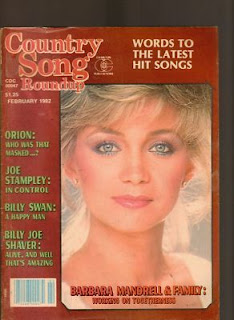Posts
Showing posts with the label ray price
Reviewing The Top Ten Country Hits From This Week In 1975
- Get link
- X
- Other Apps
Reviewing The Top 10 Country Singles From This Week In 1973
- Get link
- X
- Other Apps
Reviewing The Top Ten Hits From This Week In 1982
- Get link
- X
- Other Apps
The Weird, Brilliant Mind Of Roger Miller
- Get link
- X
- Other Apps




